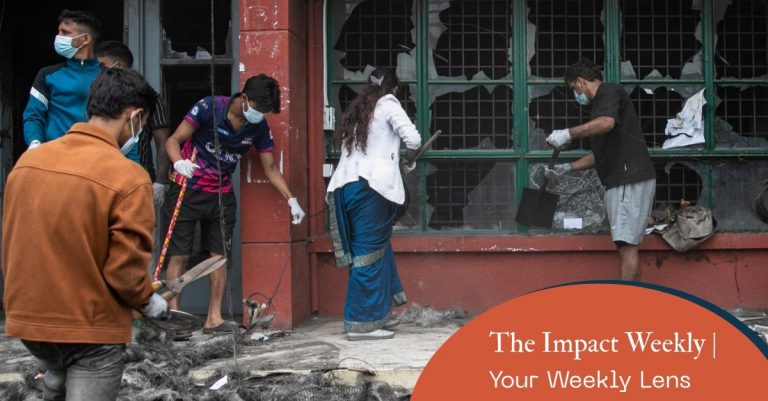With an allocated budget of Rs. 10.14 billion for the Ministry of Commerce, Industry and Supplies in the recently announced budget for fiscal year 2082/83, the government has laid out a strategic roadmap to foster industrial development, facilitate entrepreneurship and boost Nepal’s manufacturing ecosystem.
The national budget with total outlay of Rs. 1.86 trillion, aims to prioritize economic recovery and stimulate growth by placing strong emphasis on MSMEs, youth-driven startups and industries with export potential.
Startups and MSME financing
A central focus of the budget is the continued provision of concessional loans for startups. The total capital of Rs. 730 million has been allocated to offer loans at a highly subsidized interest rate of 3%, with targeted focus on emerging Gen-Z entrepreneurs. Simultaneously, the program also seeks to promote the establishment of incubation centers in collaboration with academic institutions, government agencies, and the private sector, which aims to transform innovative ideas into market ready ventures.
To further support these initiatives, the government plans to strengthen the brand of domestic goods and services, enhancing the market recognition and boost competitiveness.
Boost agriculture and livestock exports
The government has announced plans to upgrade processing plants, quarantines and laboratories to meet international standards and obtain global certification for high-value agricultural products such as fruits, vegetables, meat, and others to boost their exports. This includes quality standards, certification, laboratory testing, and branding to promote the export of products such as large cardamom, tea, coffee, ginger, turmeric, cinnamon, Akbare chili, timur (Sichuan pepper), and incense materials.
The plan also includes promoting fresh meat exports by encouraging large-scale farming and improving quality. To boost productivity, the government aims to artificially inseminate 850,000 livestock under a breed improvement program and produce 55 million vaccine doses to control livestock diseases and prevent outbreaks. A budget of Rs 850 million has been allocated for these initiatives.
Additionally, It will complete major agro market constructions and start infrastructure development in Semalar, Rupandehi to support agricultural exports.
Incentives for Industrial Zones and Exporters
The government had introduced a set of targeted fiscal incentives to drive industrial growth, particularly within designated Industrial Zones and Special Economic Zones (SEZs). Some of the key initiatives include —
- New industries in Industrial Zones and Special Economic Zones (SEZs) will receive concessions for three years of their operation. The monthly rental rate in SEZs have also been reduced from Rs. 20 to Rs 5 per meter square.
- Export oriented industries operating in Industrial Zones, with over 30% of their total output destined for the international market will gain SEZ-equivalent benefits.
- Developers of industrial zones will be granted rent concession up to 50%, on par with hydropower developers.
- Moreover, Kathmandu-based industries are incentivized to relocate outside the capital valley, through the provision for free leases in designated industrial areas, aiming to reduce pollution and ease urban congestion.
Incentivize Medicinal and Herbal products (MAPs)
With the aim to promote the production and trade of natural and herbal products, the government plans to actively engage the private sector to identify economically viable MAP products (Medicinal and Aromatic Plants) for collection, processing, and value addition. Based on feasibility study, selected plants will be supported through infrastructure and incentives to enable product development for both domestic and export markets. For this total budget of NRs 20 crore will be allocated.
Industrial Infrastructure Development
Government, in partnership with the Investment Board and private sector stakeholders plans to establish and operate modern industrial zones in Daiji, Gaurishankar, Laxmipur, Motipur, Shaktikhor, Mayurdhap and Damak, with additional SEZs in Panchkhal and Simara will also be operated with private investment. For this, a total budget of Rs. 1.55 billion has been allotted for industrial infrastructure development.
EXIM process simplified
Exporters and Importers are no longer provisioned to provide bank guarantee of NRs 3 lakh to get EXIM code. This enables small and new businesses to participate in international trade without committing a significant amount of capital as collateral.
Empower Export and Outward Investments
To position Nepal for deeper global market integration, the government introduced a reformed export strategy focused to boost the global trade competitiveness and industrial integration.
Uplift traditional skills within Dalit Communities
As an initiative to promote inclusive industrial development, the budget introduces “Bhagat Sarbajit Entrepreneurship Development Program” dedicated to preserve and commercialize the traditional craft of Dalit communities. The budget allocates a total of Rs. 500 million for this initiative with provision of capital subsidies, concessional loans and skill development support for artisans working with gold, silver, bronze, bronze, copper, iron, leather, wood and stone.
Tapping potential of natural resources
The government plans to host an international mining conference to tap into Nepal’s mineral resources and promote them as export commodities. Alongside this, feasibility studies will guide the identification and development of economically viable herbal and forest-based products for both domestic use and export, with active private sector participation.
Reforms in land and capital access
The government has proposed land ceiling reforms to address the longstanding issue of industrial expansion. This enables businesses, agro-farms and housing apartment developers to purchase land beyond the usual legal ceiling.
Additionally, the working capital loan provision will be simplified to ensure accessible credit to productive sectors like tourism, construction and housing.
Key priorities focus on:
- Increase domestic production capacity
- Upgrade trade infrastructure
- Empower national branding of domestic products with coordinated “Make in Nepal” and “Made in Nepal” campaigns, in partnership with private sector stakeholders.
In light of this, the government has introduced policy measures to streamline export operation and bring investment flexibility. One such policy permits jewelry exporters to access bonded warehouses and import gold or silver equivalent to their export value, provided at least 50% of their foreign earnings are routed through formal business channels. Which is expected to reduce operational friction while also improving liquidity for manufacturers.
Similarly, to catalyze long-term export diversification, an international conference will be organized in the current fiscal year 2082/83, bringing together global mining experts to explore Nepal’s potential in mining resource exploration, production and trade.
In an effort to enhance capital mobility, Nepali businesses are now permitted to invest abroad using up to 25% of their export earnings abroad. However, at least 50% of the profit should be repatriated to Nepal. All these investments require prior approval from the Investment Board of Nepal, to ensure a balance between foreign expansion and safeguard of domestic capital.
Other key initiatives
- Business related public services — from registration to exit — will be digitalized and streamlined through one-stop centers.
- Consumer courts will be established in all provinces to protect consumer rights and foster trust in the market.
- Strict action will be taken to curb unfair practices like black marketing, hoarding, syndicates, and the sale of counterfeit goods, to promote a competitive and transparent market.
- Women entrepreneurship is being promoted through fee waiver on registration and licensing, with programs conducted to align and integrate homemaker’s skill with relevant cottage and small scale industries.





